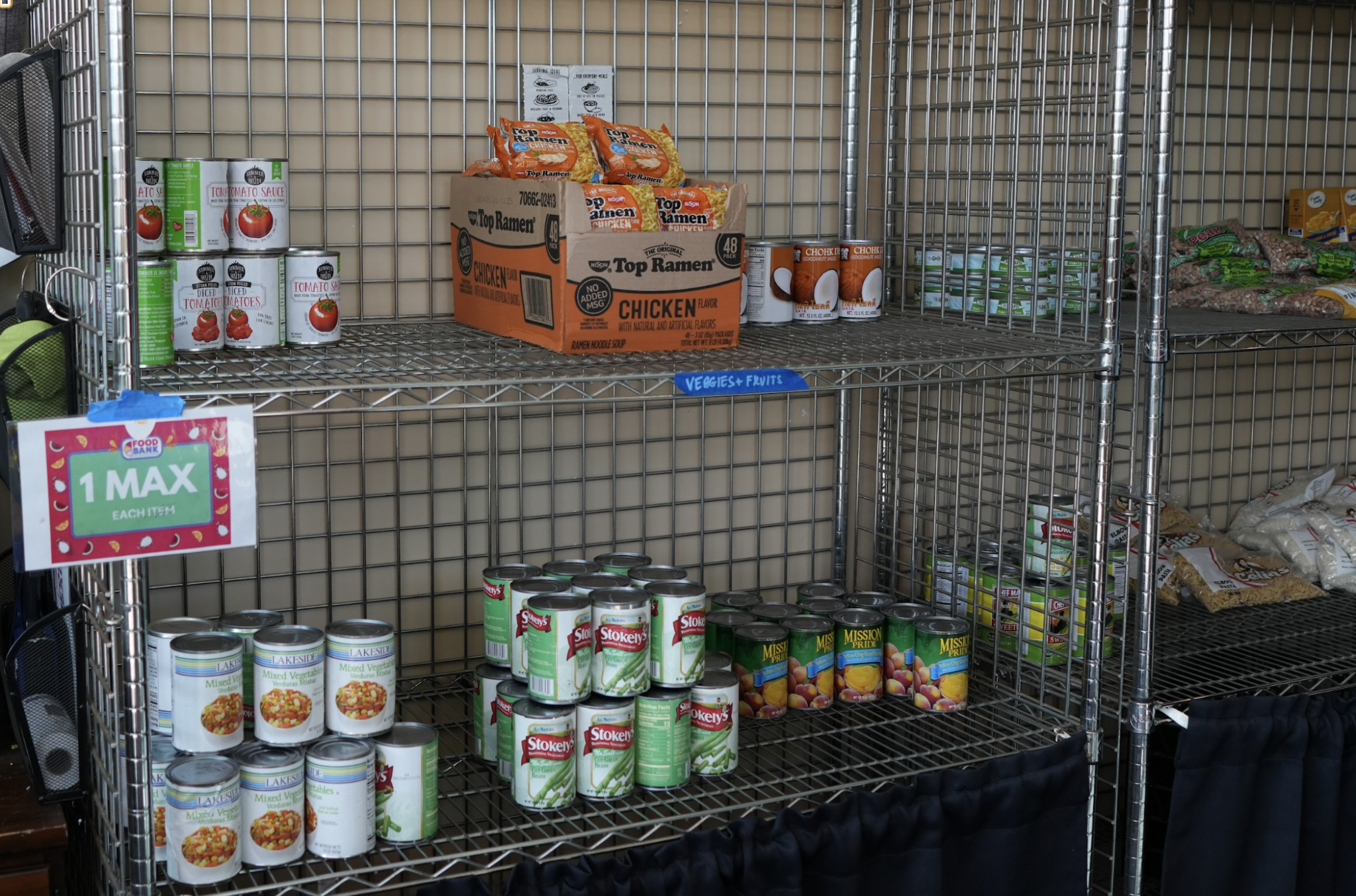Due to the federal government shutdown, which began on Oct. 1, Supplemental Nutrition Assistance Program benefits have been delayed until further notice. There are several campus resources for students facing food insecurity during the delay in benefits.

Alternative resources for students are the A.S. Food Bank located in the UCen and the Miramar Food Pantry located at Sierra Madre Villages. Shengyu Zhang / Daily Nexus
UC Santa Barbara students who are CalFresh recipients will still receive benefits for November, but they will not be able to access them until a later date. A federal judge ordered the Trump administration to pay for Supplemental Nutrition Assistance Program (S.N.A.P.) benefits on Oct. 31, but it is still unclear how much of those funds will be allocated to California, or when they will be distributed.
According to Katie Maynard, the director of Student Sustainability Initiatives at UCSB, the benefits students will receive would be a “partial allocation” of the typical amount, and the timeline to receive this funding is unclear.
“The UCSB CalFresh team is in close contact with the California Department of Social Services, and particularly with our contact in the Santa Barbara County Department of Social Services, to try and understand what this is going to mean for our state and for our students,” Maynard said.
After the government shutdown ends, students can expect to receive the remaining amount of benefits that were not allocated before.
“The full benefits should still go to recipients — we don’t know the timeline for that either,” Maynard said. “There will be some amount of lag time between the government reopening and the benefits earned during the closure being allocated to students.”
According to Maynard, the best alternative options for students are the campus food pantries, including the Associated Students (A.S.) Food Bank located in the University Center (UCen) and the Miramar Food Pantry located at Sierra Madre Villages.
“What it comes down to is we can feed far more students through a food pantry than any other program,” Maynard said. “The more students can lean into those food pantries, the better off we’re going to be as a whole in being able to support students.”
According to A.S. President and fourth-year global studies, communication and Spanish triple major Le Anh Metzger, the A.S. Food Bank has been trying to increase donations through various University departments, and hopes to receive additional funding to purchase goods for students.
“I’ve been working with the chair of the academic senate to publicize [the need] for donations because I know a lot of faculty are interested in donating,” Metzger said. “I’ve also been publicizing those donations to our alumni association.”
In a statement to the Nexus, A.S. Food Bank Coordinator Crystal Bach said the food bank aims to “stock additional items” during this period when there is increased demand.
“Should we receive adequate funding, we plan to prioritize the purchase of prepared food options as we recognize that students generally gravitate towards those items and may typically rely on S.N.A.P. benefits to purchase prepared food, even when relying on the pantry for their produce and pantry staples,” Bach said in the statement.
This past week, Metzger has been working to gather $15,000 of A.S. funding to donate to UCSB Basic Needs for grocery vouchers.
“How it works is that certain students can be eligible to receive $100 worth of grocery gift cards per quarter,” Metzger said. “So [if we] give them $15,000, we can assist 150 additional students in getting grocery vouchers.”
An additional resource Metzger highlighted is a soup kitchen project that the A.S. Outreach Committee has been working alongside a catering company. The program will distribute 1,000 containers of soup at Santa Barbara Hillel, located at 781 Embarcadero del Mar in Isla Vista.
“They’ll be providing 500 meals on Saturday [and] 500 meals on Sunday,” Metzger said. “They’ll be doing a pilot program for that for the remainder of the quarter.”
Maynard recommended that students who have the “highest need” visit the Food Security and Basic Needs Advising Center in the UCen to speak with a Basic Needs peer advisor. Available resources include an emergency financial aid program and access to the dining commons.
“It’s really about us being able to sit down with the student and really have a conversation with them about what their needs are, what resources they’re using and really help them to come up with a solution that’s going to work for them,” Maynard said.
One issue that Maynard has noticed recently is that less students have been coming into the Basic Needs office to apply for CalFresh since the federal shutdown began.
“We’ve talked to a number of students who are eligible for CalFresh but are holding off on applying because they say, ‘Oh, well, there’s a federal shutdown right now. I’ll wait and apply when the shutdown starts again,’” Maynard said.
Maynard urged students to continue to apply for CalFresh during the federal government shutdown, as it takes about 30 days for their application to be processed and, once approved, they will be able to earn benefits.
“They can start the process, they can get their application lined up, and they can start earning benefits, so that when the government does turn back on, those benefits will be ready for them,” Maynard said. “We’re really encouraging students to still come in and chat with us.”

Nathan Villaseñor / Daily Nexus
A version of this article appeared on p. 3 of the Nov. 6 print edition of the Daily Nexus.





















On the warehouse, tools and supplies were constantly getting lost, and it used to take hours to find them. We checked this website and installed sensors on 45 pieces of equipment and connected everything to an online dashboard. Within a couple of weeks, it became clear that the equipment was being used much more efficiently, downtime dropped by 23%, and material wastage decreased by $1200 per month. Now everything is tracked automatically, and there’s no more running around with sheets or moving boxes just to figure out where things are.